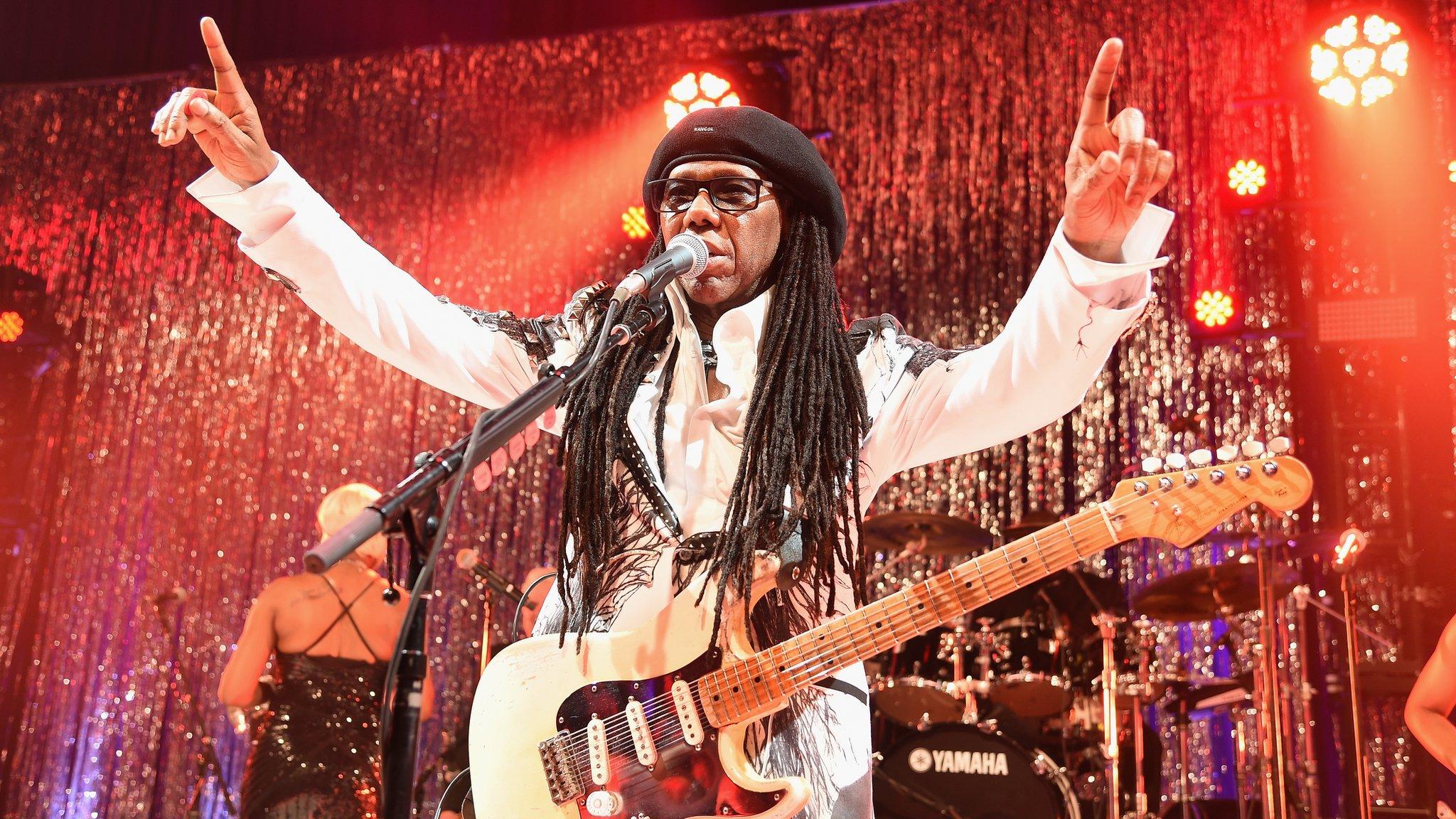Nile Rodgers: My mom, Alzheimer's, music and me
- Published
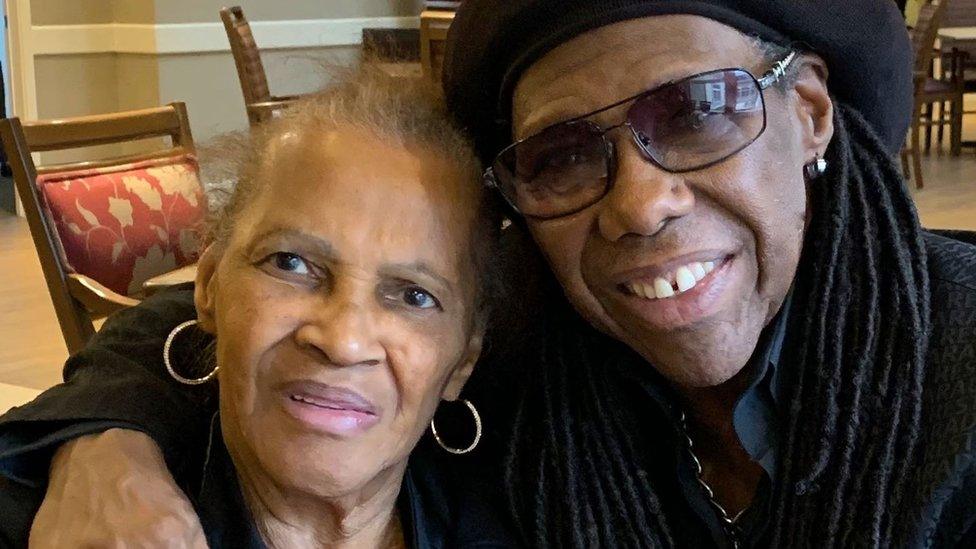
Nile Rodgers and mother Beverly
Disco legend Nile Rodgers knows the pain Alzheimer's disease can cause, having seen it affect five family members, including his mother. He's now supporting a BBC Music Day project to use music to reach people with dementia.
Nile Rodgers' mother Beverly has had Alzheimer's for 13 of her 81 years, but something remarkable happened when he took her out to a shopping mall to celebrate her birthday.
"Every time we passed any kind of shop that was playing music, she would start to sing," the Chic star says.
"Anything that was old, she knew perfectly. So a Frank Sinatra song would come on, or Diana Ross or Barbra Streisand. My mom just nailed it. It was incredible."
Other shoppers were so impressed that they started clapping. "We stopped in front of one store and she was singing so great that people thought she was busking or something."
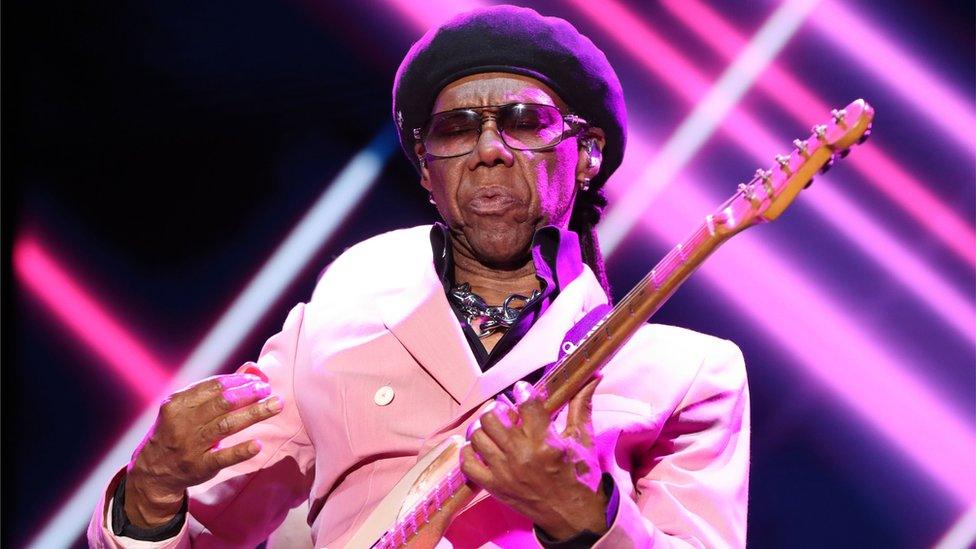
Beverly was not a professional singer in her youth - far from it. If she ever sang along with a tune before, she would do so under her breath.
"I've never really heard my mother sing aloud in my life until she developed Alzheimer's," Rodgers says. "She's developed perfect pitch, which is incredible. When my mom and I go walking down the street, she's all of a sudden got a real singer's voice, and she's hitting the notes perfectly."
It's common for people with memory conditions to find they still know the words to songs from decades ago, even if they can't remember what they did earlier that day. There's also evidence that singing can improve their wellbeing.
That's why Nile Rodgers has signed up to be an ambassador for BBC Music Day, which will include the relaunch of the BBC Music Memories website, external, featuring music clips from 10 decades to trigger memories. Its update for BBC Music Day in September will add songs from 20 countries including India, Pakistan, and Jamaica, as well as football and rugby songs, religious music and nursery rhymes.
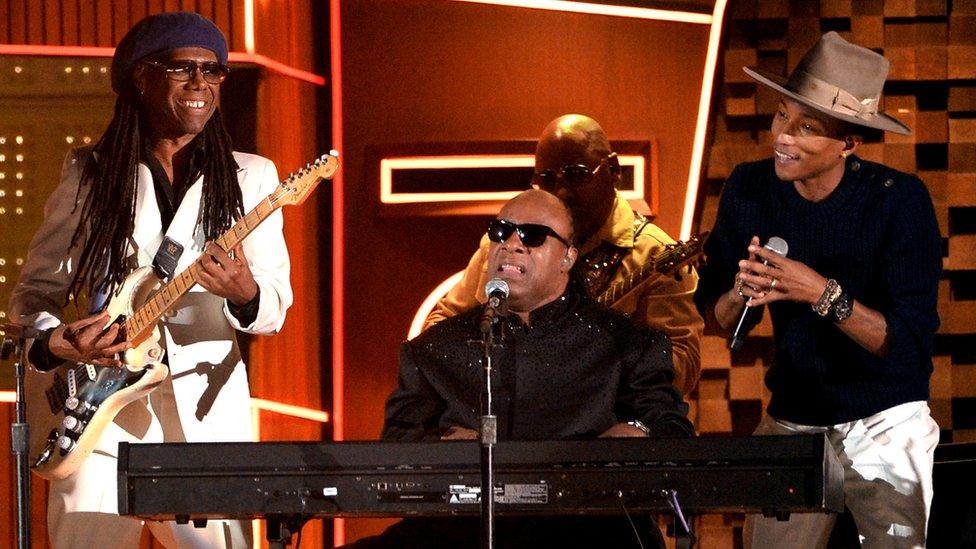
Nile Rodgers performing with Stevie Wonder and Pharrell Williams at the 2014 Grammy Awards
The guitarist, songwriter and producer believes songs become "internalised" in our brains, so they come flooding back in a way other memories might not. When he brought his mother to watch one of his gigs from the wings last year, he could clearly see what difference it made when she heard a familiar song.
"I looked over at her, and she sang every single song," the triple Grammy Award winner says. "But if we improvised or added a new section to a piece of music and she didn't know it, she would go into a very blank Alzheimer's look on her face.
"It was really amazing for me to watch because it was almost like going in and out of consciousness. Even though she was still standing, her brain almost just shut down until the familiar part came back, and then she would just come right back and sing."

Alzheimer's disease - the most common type of dementia in the UK - also struck his aunt, uncle. grandmother and great aunt.
Rodgers says he doesn't know if there's a genetic link in the family. "But I told them [the doctors] that they can absolutely have my brain and see if there's something going on in there because I don't understand."
At 66, the musician is almost the age his mother was when she was diagnosed.
She was just 14 when she gave birth to him. She initially had her son adopted, but changed her mind and fought to get him back.

She was a "really hip, black 'it girl'" in Greenwich Village in the 1950s and 60s, he says. Actor Sydney Poitier apparently proposed to her five times. But she and Rodgers' step-father were also heroin addicts. Rodgers would not fully understand what that meant until he was eight.
"It was Thanksgiving day. I was going home to have a big celebration, and my stepfather had an overdose and died, and they brought him back from the overdose," he recalls. "They had been junkies all along before that.
"I didn't know what a junkie was. I thought it they meant they were hoarders. When I would hear that they were junkies, I would think their hobby was collecting artefacts that didn't mean much to other people."
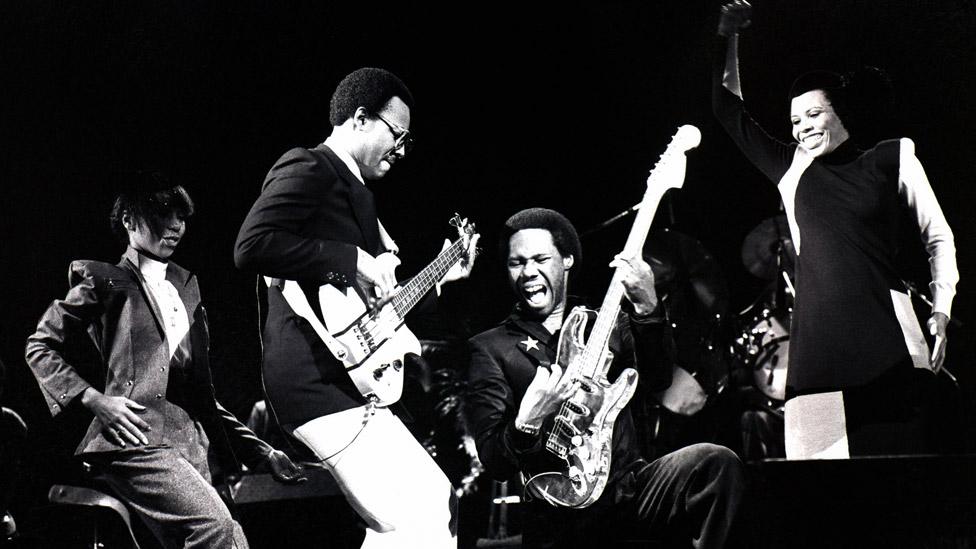
Nile Rodgers (second right) on stage with Chic in 1979
Rodgers left home at the age of 14. After forming Chic with Bernard Edwards, he had massive disco hits like Le Freak, Good Times, and Everybody Dance, before working his funky magic for artists like David Bowie, Duran Duran, Madonna and Daft Punk.
In recent years, he has had cancer twice, but now describes his health as "fantastic". He has also enjoyed a career renaissance as thousands of fans have rediscovered his songs.
In August, he is curating the Southbank Centre's Meltdown Festival, which will include appearances from Johnny Marr, Jungle and Thundercat.
Meanwhile, he is also his mother's guardian, and says he is "more involved in her life than I have been since I was 14 years old".
"It's really strange because we, right now, seemingly have the best relationship we've ever had in our lives," he explains.
"The way her Alzheimer's has affected her now is that she's not deteriorating - or at least the parts that make her very pleasant are not deteriorating rapidly at all. So she's the life of the party."

BBC Music Day - 26 September
Other plans just announced include the first music and dementia festival co-created by people living with dementia
BBC Memory Radio will launch online, with 60-minute montages of songs from the 1940s, 50s and 60s
Blue Peter will launch its first music badge, which children can earn by tracing their family's history through music, with tips from Sir Paul McCartney
A special episode of Bargain Hunt will feature indie bands The Darkness and Feeder

Follow us on Facebook, external, on Twitter @BBCNewsEnts, external, or on Instagram at bbcnewsents, external. If you have a story suggestion email entertainment.news@bbc.co.uk, external.
- Published29 October 2018
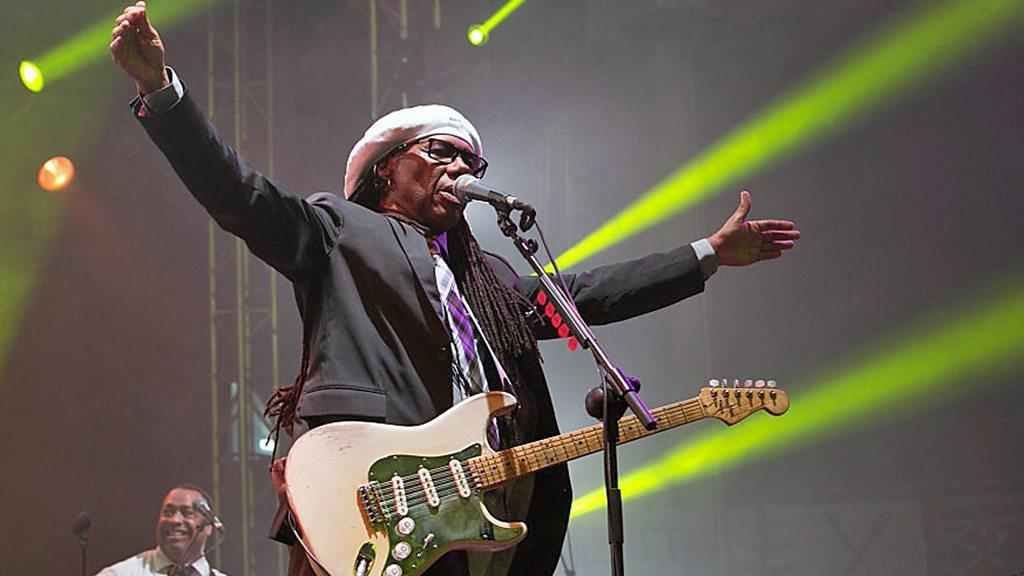
- Published16 July 2018
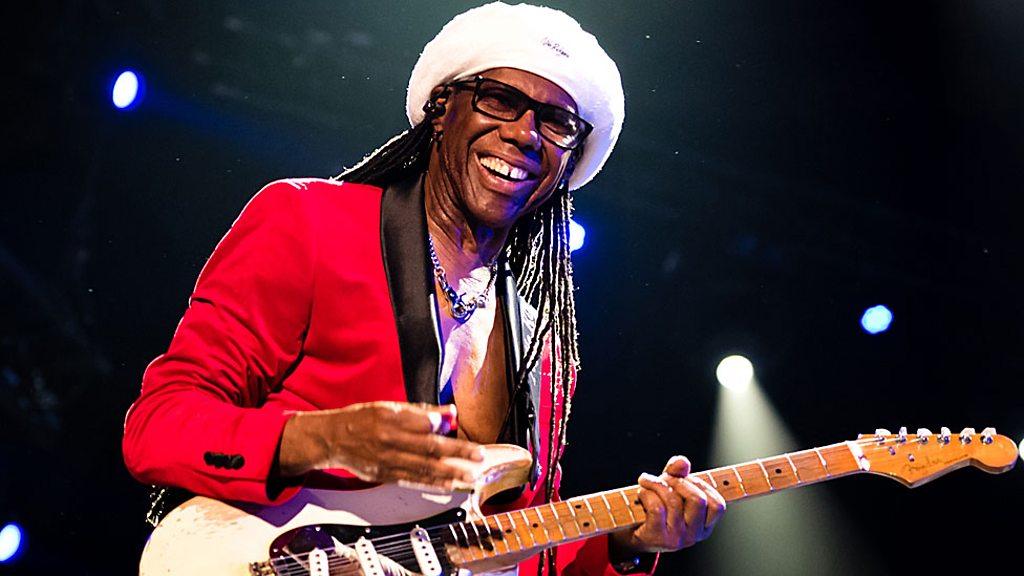
- Published22 March 2018
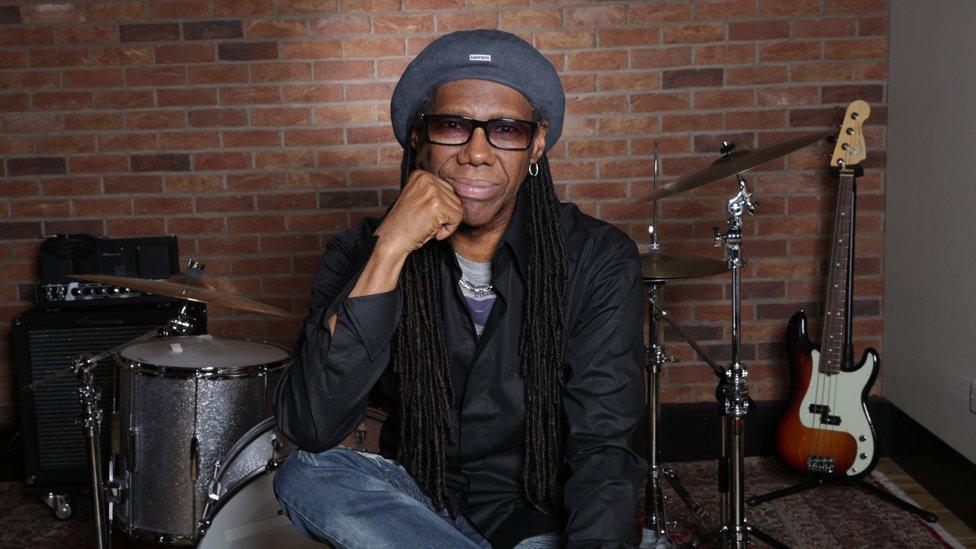
- Published6 December 2017
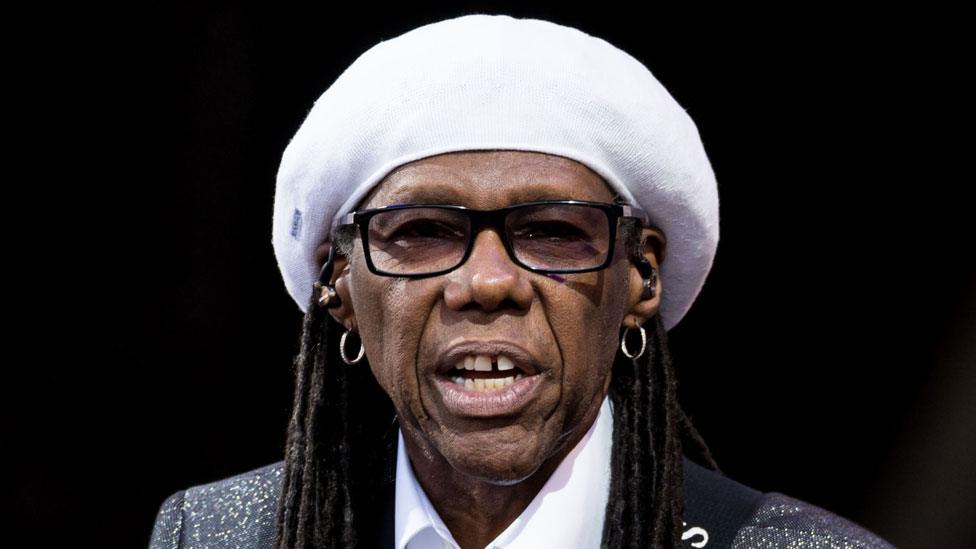
- Published19 March 2015
